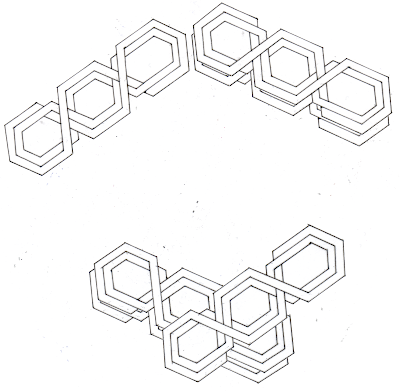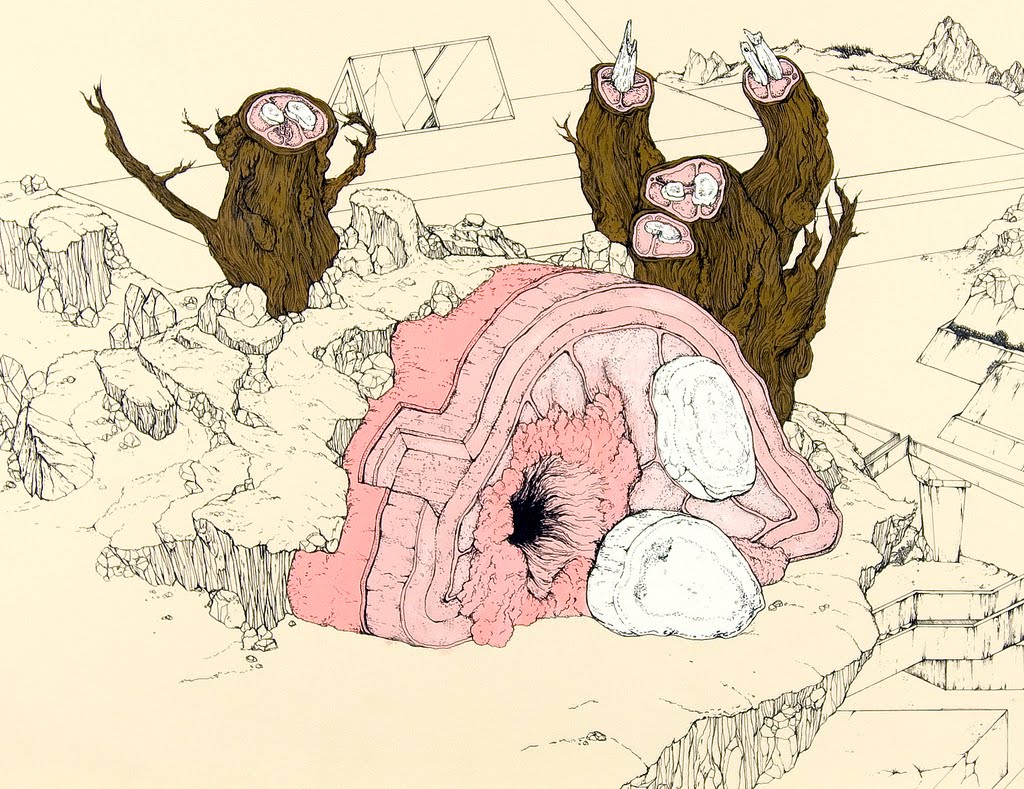There is something quite unfortunate about the article. I do not usually purchase newspapers, I tend to read either on those the internet of the ones that come across my path on public transport, in a cafe, library or read those that others have bought (which is a bit cheeky perhaps). These days there is always a lone newspaper flapping about somewhere, waiting to be saved from the rain, recycled or something. And although I enjoy of the physical aesthetics of publication and print I rarely feel the desire to own my own newspaper. The most convincing and moving stories are those devised with a creative, diverse, rousing and/or amusing use of language. Peoples opinions are valid and can take into consideration factual information about an event or idea but can rarely represent it, so I am therefore naturally skeptical about some of the claims newspapers make.
One daunting thing about Rupert's move is that it might encourage others to charge for information, I agree that 'everything comes at a price' but I disagree that it is helpful to builds barriers around internet access to information, especially when those publications are basically editorials. Its a bit ridiculous I think. An almost cartoon-like, condescending slap in the face from Rupert's lucrative white glove of profit-making. Economic means 'pertaining to the production and use of income' and economical is 'avoiding waste, being careful of resources'. Rupert is taking that concept against how it relates to modern communication and there is little proof that the production of income under his rule is being used in a most effective way, its like he is wiggling down a narrow road. Social enterprise could to be the way to enhance content in the best interest of the public.
QUESTIONS:
2. Is Rupert Murdock correct in saying that there is not enough advertising revenue to go round, therefore news papers and other news providers will have to charge for their content?
Rupert Murdoch has now declared the free ride over. His titles – the Times, Sunday Times and others – will be obtainable in some shape or form online only through a credit card number. Such charges are already levied for the nether regions of the Wall Street Journal and New York Times. But attempts to put mainline news and comment behind a "paywall" have in the past foundered, because of the ease of circumvention and the bruised egos of writers suddenly denied the bulk of their "market".Murdoch's move is comparable to his attack on union-led newspaper costs when he moved his British titles to Wapping in 1985. Then the rest of the industry jeered and rushed to undermine him, while privately praying for him to succeed. When he did they rushed to imitate him. Britain's newspapers enjoyed two decades of prosperity and choice unparalleled in the western world. Now Murdoch wants to transform not costs but revenues. Getting history to repeat itself will not be easy. The bogus idea that "news is free information" has captivated a generation of media managers. It is like saying fruit is free food or wind is free energy. As James Harkin, the author of Cyburbia, wrote in the Guardian last week, newspapers were "seduced by the evangelical gee-whizzery of the electro-hippies". Editorial machismo was boosted by multimillion "unique hits". The truth was that online newspapers were free-sheets for slow learners.
Note: A very big priority to any newspapers is to fill pages, so that they have something to sell- I would like to say a little bit about free news papers. They are free, sustained by advertising revenue but upon reading any free paper it becomes clear that quality had been compromised for its freeness. In my opinion the metro is rubbish, lets be honest and the london evening standard is no better, if I want to read one, Ill pick one up, but I do not take these sources as anything more than editorials and I would much rather read them on line. Online newspapers generally contain diluted versions of their printed counterparts. The sense of obligation to charge for this superficial, edited content, seems a bit odd, perhaps that is all people what to read in which case perhaps the use revenue earned from charging could change this. But this is mere assumption, and regardless of this the content would only account for a fraction of available information.
Concerning "not enough advertising revenue to go round", I assume that this refers to all the small departments that contribute to the production, distribution, proofing, broadcasting, management and creation of news and advertising. Alot of people work in this area and alot of people need to be payed for their work, but this is seems to be within an aging framework. Having sympathised, I am curious to know about the state and location of internet advertising revenue that is made by being online? There is something in Rupert's motive that is not entirely clear to me and the kind of revenue Rupert Murdoch is talking about appears to be from a time who's end is drawing nigh. Short term solutions that profit a minority leads to an influx, imbalance and collapse in the long term.
Rupert charges people to watch sport, news and all sorts of programs on Sky and then collects the advertising revenue. TV is not my concern although mentioning it shows that he believes it is correct to charge for information. Television can not reach as far and it is a one way form of communication, it talks and the viewer sits and listens. This will inevitably be replaced but something more interesting in the future. Its unnecessary to simply start charging for content. Rupert's enterprises already build up huge fractions of economy, by all means I am not an economist, so I could be utterly wrong but I just dont understand how these enterprises are distributing their income when they say there is not enough to go round, this seems inefficient.
This presentation illustrates a relevant point regarding business.
Here are two comments from the page under the article:
10 Aug 2009, 10:54PM
"I purchase several newspapers everyday, local, national, and international. The online experience so far is superficial for content and also behind the speed with which I can assimilate what I need from a newspaper. When I have been away from an internet connection for a while, I read a book- a -day. Recently, on holiday away from the internet I realised what I was missing ( or not missing) and will continue to be a print junkie thanks."
ThomasReturns
10 Aug 2009, 10:56PM
"I'm more concerned about the disappearing virtual rain forests! The mountains of virtual sawdust being pulped through the relentless virtual paper mills. And of course, the real power stations polluting the real atmosphere to fire up all those naughty Guardian readers' computers. In any case, the internet is more like a giant reference library than a news-agent. That's why Murdoch will surely fail. But he'll probably bring down the Times in the process."
Rupert's got too much money to fail hasn't he? Maybe some one else will fail, get fired or perhaps this moneywall will only be temporary?
3. What do you think a Murdock shaped internet would look like in the future if his ideas were successful?
If Rupert's plans succeed then they could be capable of making the internet less exciting and have inhibiting results on our access to information on a larger scale. Then again for every action there is a reaction and so one certain thing is that the way in which people spread and read content will take new forms that will flitter around Murdoch's plans even though parts of the internet will be segregated, but there will be very little he can do about people overlooking regulations like this. Attempting to apply a hierarchical structure on the internet might have little effect on the overall shape of the internet, it would be like trying to put a triangle shaped block into the circular hole of a jigsaw- it will not fit well. It cant really work, the web's volume is predominantly built by user content so people could (for example) write about content that must be payed for to be seem and there is no rule/law that states this is illegal because everyone is entitled to their view and the internet is a medium through which this can propagate. What it represents is one man's financial empire desperately trying to expand their territory in to a virtual realm in which so many average people can and will contribute what they can to reach out to one another. To deprive them of the freedom to do this would be illegal and an infringement of their basic human rights. Not everyone can make a TV channel or mass produce printed media but all people who can use the internet are capable of spreading information and getting attention. There are greater threats to professional journalists, photographers etc but I don't think they can be shut down so easily, professionals can and will have to devise alternative strategies available to them in order to work and get payed.











